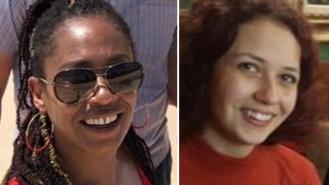
The Karen Read trial: Acquitted of John O’Keefe's murder
The criminal trial of Karen Read is a case that has gripped public attention in Massachusetts and far beyond. Centring around the death of Boston police officer and Read’s boyfriend, John O’Keefe, the case has featured explosive allegations of law enforcement misconduct, conflicting accounts, and ongoing debate as to what really happened.
At Crime+Investigation, we love delving into complex stories like this. As Read’s second trial concludes with her acquittal of murder, here’s everything you need to know about the case that’s got everyone talking.
Background to the case
Karen Read, a former financial analyst, faced trial for the alleged murder of her boyfriend, John O’Keefe.
Prosecutors claimed that Read struck O’Keefe with her Lexus SUV during a snowstorm, which resulted in his death from hypothermia and blunt force injuries. She pleaded not guilty to charges including second-degree murder, vehicular manslaughter and leaving the scene of a deadly accident.
The case became one of the most high-profile in recent Massachusetts history, not least because of the tangled web of evidence, the involvement of local and state police, and accusations of a possible cover-up.
Read’s first trial in 2024 ended in a mistrial in July 2024, due to a hung jury. Her second trial began in April 2025.
The night in question
John O’Keefe’s body was discovered outside 34 Fairview Road in Canton, Massachusetts in the early hours of 29th January 2022. The previous evening, the couple had reportedly been out drinking before Read dropped O’Keefe off outside the house of fellow Boston police office, Brian Albert.
After O’Keefe failed to return home and growing concerned for his welfare, Read returned to the scene with two friends. They discovered John’s body, partially buried in snow, with injuries to his head and arms.
The prosecution argued that Read was intoxicated and angry after leaving the property, and that she knowingly or unknowingly hit O’Keefe with her vehicle before fleeing.
However, the defence claimed that O’Keefe was the victim of a vicious attack inside Albert’s home and was subsequently dragged outside in an attempt to frame Read.
The Google search controversy
A pivotal moment in the case came from the testimony of Jennifer McCabe, a friend of Read’s who was present when O’Keefe’s body was discovered.
According to the defence, McCabe – the sister-in-law of Brian Albert – made a suspicious Google search at 2:27am on the morning in question, hours before O’Keefe was discovered. The search? ‘Hos(sic) long to die in cold’.
The defence cited this as evidence suggesting foreknowledge of O’Keefe’s condition. However, McCabe has argued that she made the search at Read’s request after discovering O’Keefe’s body, and contested the time of the search.
The discrepancy was a key part of the defence’s argument – that key witnesses may not be telling the whole truth.
Prosecutors attempted to exclude the testimony of a digital forensics expert from Read’s retrial. They argued the claim from Richard Green, of United States Forensics, that the search was made at 2:27am lacked any evidentiary support.
Michael Proctor and the question of misconduct
Further fuelling public intrigue were revelations surrounding Michael D. Proctor, the former Massachusetts State Police trooper assigned as the lead investigator in the case.
In March 2025, Proctor was terminated and dishonourably discharged from the Massachusetts State Police following an internal trial board.
Proctor’s conduct during the investigation has drawn sharp criticism. According to official reports, he sent crude and unprofessional text messages about Karen Read, referred to her with profane language, and allegedly shared sensitive information about the case with his sister – a close friend of Jennifer McCabe.
The defence used this to cast doubt on the integrity of the investigation and to suggest Read was the victim of deliberate framing.
The case has also sparked scrutiny of how evidence was collected and processed, particularly at the Fairview Road residence. No-one inside the house was charged in connection to the incident, but the defence raised questions about whether a thorough search was ever properly conducted and whether key individuals were ever treated as potential suspects.
A mistrial and a second trial
After months of courtroom drama that led many to suggest it had the makings of a modern-day ‘Trial of the Century', the first criminal trial ended in a mistrial on 1st July 2024. The jury, which had deliberated for days, ultimately reported that it was hopelessly deadlocked.
According to statements later made by jurors, the division stemmed not from a lack of effort, but from deeply entrenched beliefs about the evidence and its interpretation.
A second trial began on 1st April 2025.
What’s the latest in the case?
In June 2025, Karen Read was found not guilty of second-degree murder. After a long and complicated legal battle, the Massachusetts woman walked free from court, to the cheers of hundreds of supporters in Dedham.
She won’t face prison time. But the jury did convict her on one charge: drink-driving. For that, she’s been sentenced to a year of probation.
A packed courtroom (and the crowd outside it)
The verdict brought emotion on both sides. Inside the courthouse, Read was in tears, hugging her lawyers as the verdict was read out. Outside, it was pink confetti and roaring cheers. Supporters had gathered in their usual uniform of pink T-shirts and erupted as she stepped up to the microphone.
'I could not be standing here without these amazing supporters,' she said. 'No one has fought harder for justice for John O’Keefe than I have.'
She thanked her legal team, her family and the wider network of supporters (including online campaigners and amateur sleuths) who’ve followed the case from the beginning.
The verdict (and how we got here)
The jury’s decision came after four days of deliberation and over 20 hours in the jury room. In the end, they cleared Read of the most serious charges: second-degree murder, vehicular manslaughter while under the influence and leaving the scene of a crash that caused death.
She was convicted only of operating a vehicle while intoxicated, an offence that, for a first-time offender, comes with probation rather than jail.
Compared to her first trial, her defence team took a noticeably different tack. Sharper questioning, more emphasis on what they claimed was police misconduct and a tighter focus on reasonable doubt.
Prosecutors stuck with their original theory and also relied heavily on data from a health app linked to a device worn by John O’Keefe. According to a forensic examiner called to the stand by the prosecution team, location data shows O’Keefe didn’t go into the house.
But the defence appeared to land their message and Karen Read was cleared of the most serious charges.
What Read’s family had to say
Outside court, her father praised her strength and thanked those who’d stood by them. Her older brother Nathan said the family hoped life might slowly return to normal.
'My dad’s 77, my mom’s 75. We wanted this to end with the greatest possible news and I think we got that today,' he said.
Supporters vs critics (and what’s next)
The response to the verdict has been polarised from the start. One side sees Read as a scapegoat, wrongfully accused and nearly imprisoned for a crime she didn’t commit. With a side of police corruption thrown in for good measure.
The other still believes she played a part in O’Keefe’s death. They say justice hasn’t been served.
So, is this the end?
Probably not.
Other than the one year of probation for the conviction of drink driving she’ll serve, Karen Read is free. But the wider questions haven’t gone anywhere. What really happened to John O’Keefe? How did he end up left for dead on the front lawn of his friend’s house with blunt impact injuries to his head?
There’s no sign of further charges, at least for now. But the pressure on local law enforcement isn’t likely to ease. Not with online commentators, content creators and citizen journalists continuing to comb through the details.
Want more up-to-the-minute stories? Subscribe to the Crime+Investigation newsletter and get updates like this straight to your inbox.











